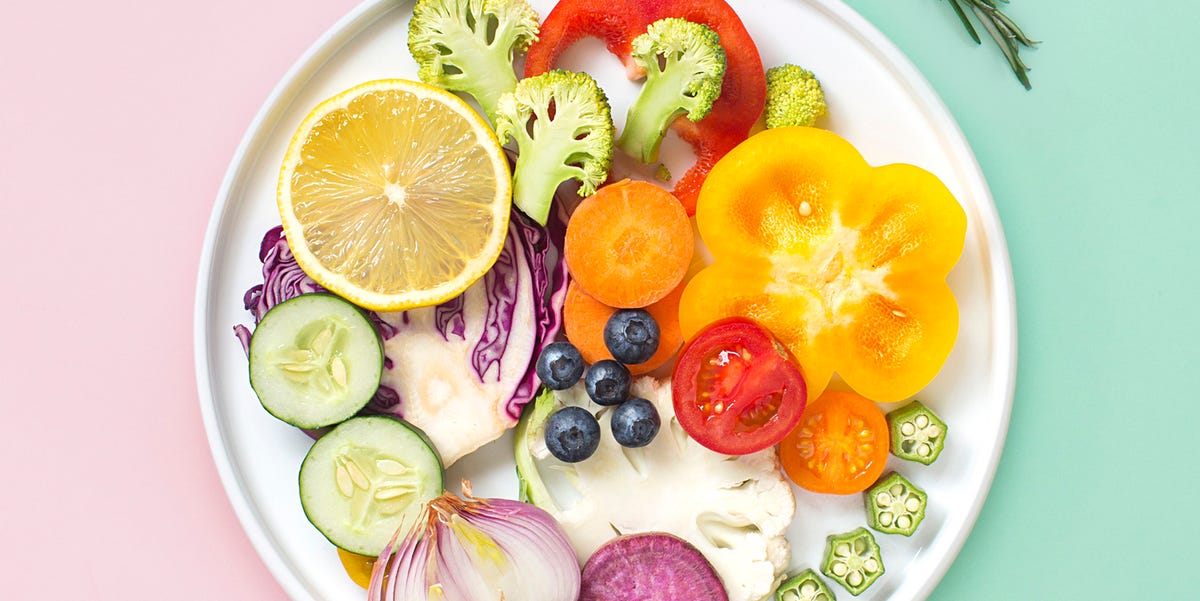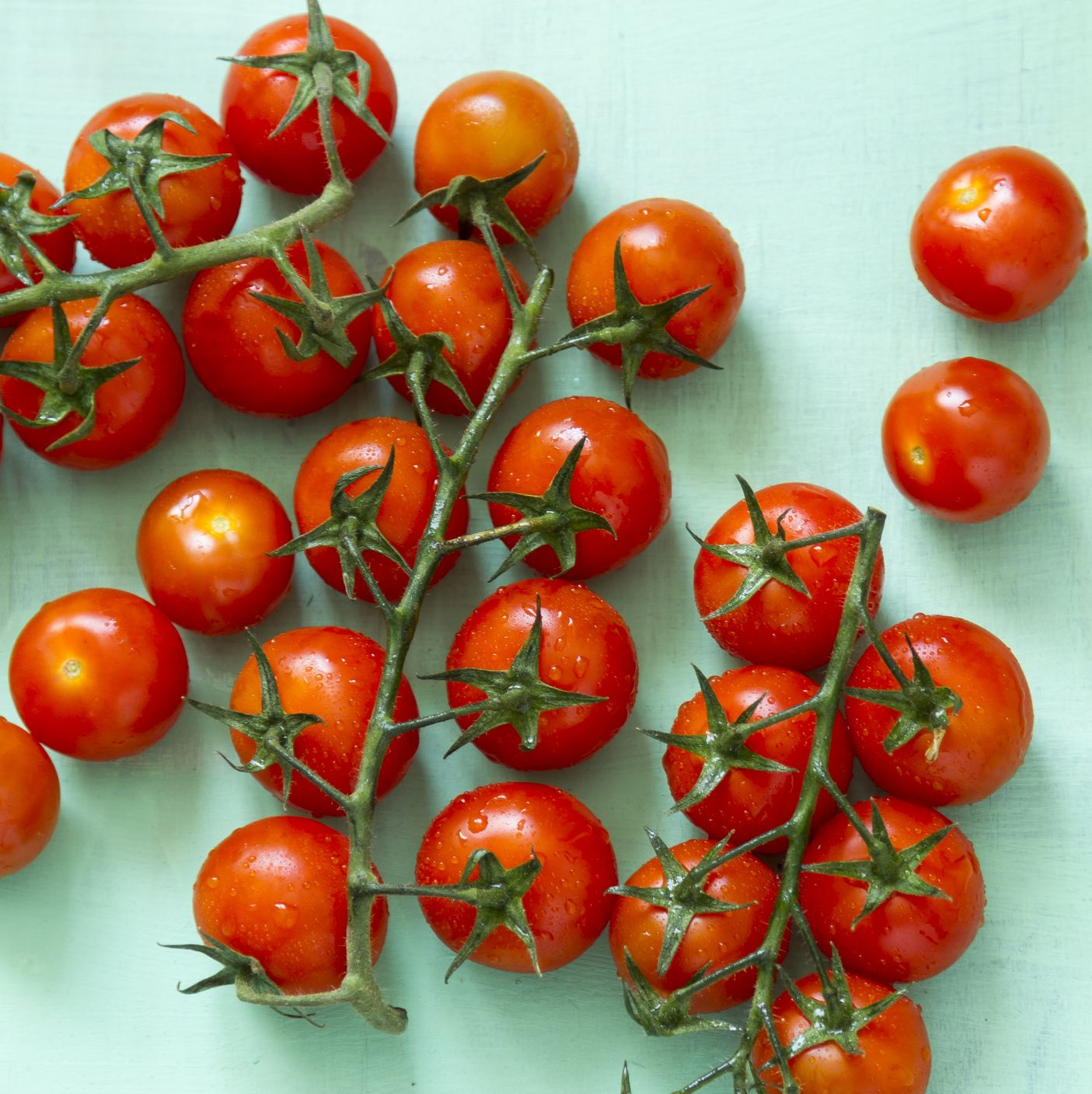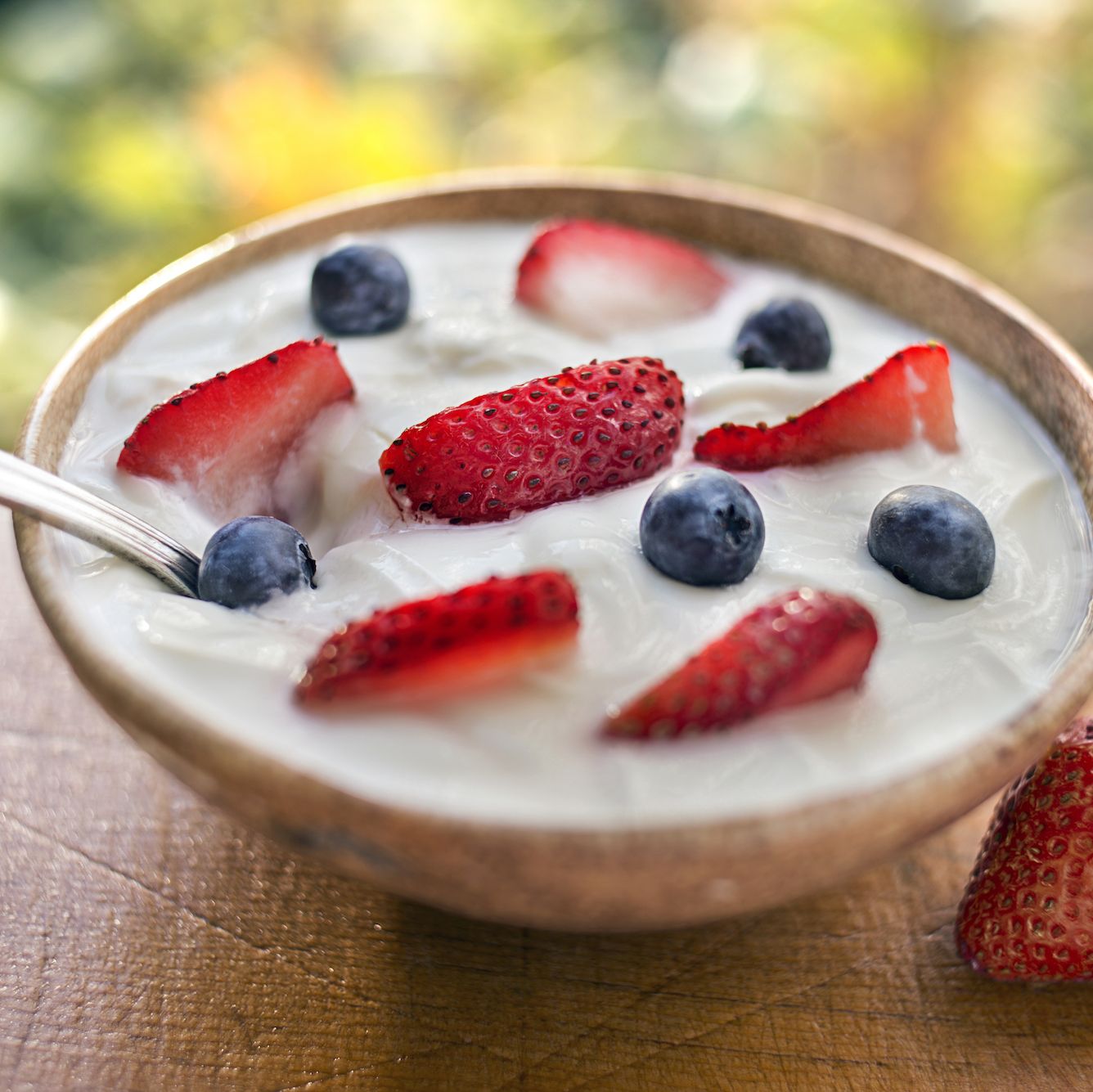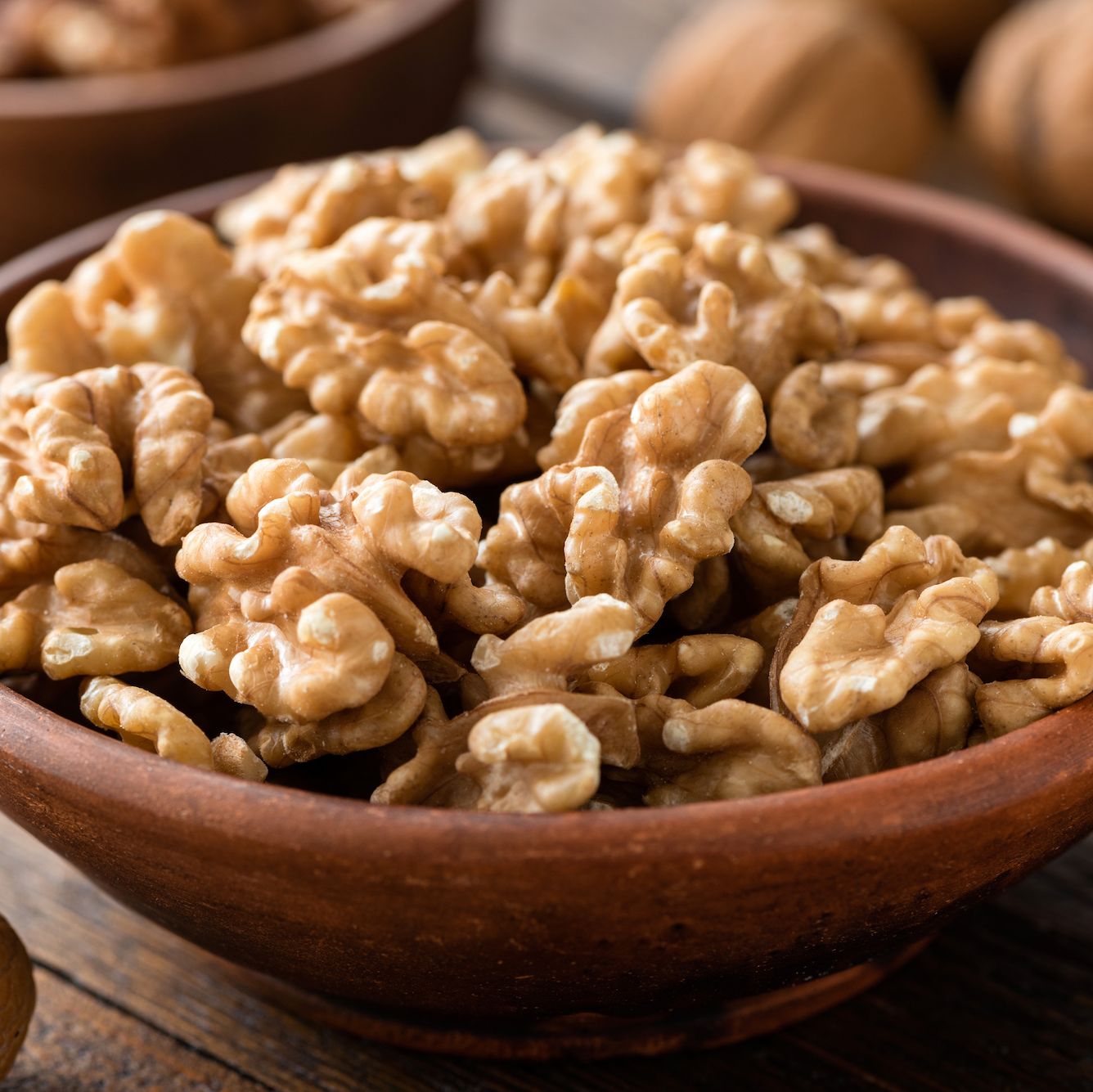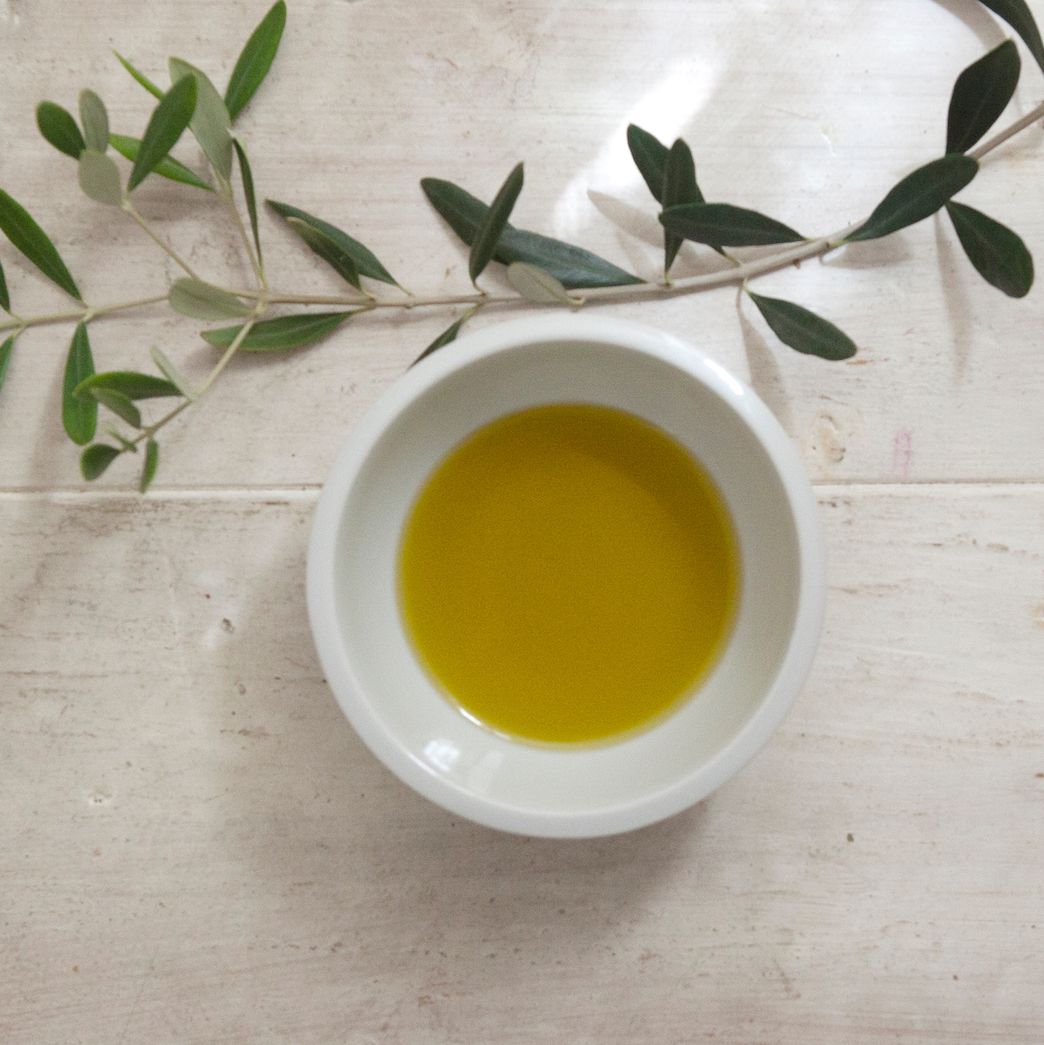Low-carb diets are more popular than ever. But before you hop on the bandwagon, registered dietitian and Dressing On The Side author Jaclyn London, M.S., R.D., says it’s important to remember that just because a food has carbohydrates doesn’t mean it’s unhealthy. In fact, our body needs carbs to survive. London says that foods including legumes, lentils, potatoes and rice —all of which contain carbs — contain a variety of important nutrients and nixing them from your diet completely would mean missing out on their many benefits.
“What’s more important than the percentage of carbs you’re consuming is the quality of those carbs,” says registered dietitian and Sugar Shock co-author Samantha Cassetty, M.S., R.D. “ The latest national survey shows that adults in the U.S. consume 42% of calories from low-quality carbohydrate sources, which are foods that have added sugars and refined grains,” she says. “These foods tend to be less filling and contain fewer nutrients, and they raise your disease risk, so they really work against you.”
With this in mind, are there ever times when someone can benefit from a low-carb diet? Both dietitians say that this way of eating could potentially be beneficial for people trying to lose weight or manage their blood sugar levels. (Cassetty specifies that it isn’t the only way to do either.) If you do want to give a low-carb diet a try, you certainly won’t have a shortage of foods to eat — there’s still plenty on the table. Bookmark this list of nutrient-rich, low-carb foods for ideas on what to work into your meals.
What is a low-carb diet?
Since so many foods have at least some carbohydrates, it’s a bit tricky to figure out what counts as a low-carb food. While London says there aren’t set guidelines for this, she says that in general a low-carb diet is considered an eating plan where less than 30% of calories come from carbohydrates.
“For reference, the latest national data shows that Americans consume 50% of calories from carbohydrates,” adds Cassetty. “Meanwhile, government recommendations suggest Americans eat 45-65% of calories from carbs. So, a low-carb diet is eating at or below the lower end of this range.”
As mentioned, there is no shortage of foods that can fit within a low-carb diet. Here are 30 low-carb foods dietitians love, organized by food group.
Vegetables
1. Leafy greens
1 cup leafy greens = 1g carbohydrates
The first low-carb food on London’s list is leafy greens, which includes spinach, kale, arugula, bok choy, Swiss chard and collard greens. “Leafy greens are super nutrient dense,” London says. Though they’re low in carbs and calories, leafy greens are high in fiber (which supports the gut, heart and lowers inflammation), antioxidants (good for the brain and heart), calcium (important for bone health), magnesium (which is important for cellular health) and B vitamins (important for brain health).
2. Zucchini
1 medium zucchini = 6g carbohydrates
While winter squash (like kabocha squash and delicata squash) are not considered low-carb, London says that zucchini (a summer squash) is. Two of zucchini’s many nutrients include immune system-supporting vitamin C and potassium, which supports cardiovascular health. One way to use zucchini to make a meal lower in carbs is to incorporate it into pasta dishes; for example, mixing zucchini noodles with traditional noodles.
3. Cauliflower
⅙ medium head cauliflower = 5g carbohydrates
Stroll down the frozen food aisles at the grocery store and you’ll find cauliflower as a primary ingredient in many traditionally high-carb foods such as rice, mashed potatoes and even tots. Both dietitians are all for it. Eating cauliflower regularly can support the immune system, bone health and lower your risk for inflammation.
4. Brussels sprouts
1 cup Brussels sprouts = 8g carbohydrates
Another cruciferous low-carb veg that both dietitians love is Brussels sprouts, which are good for the gut, heart and eyes. “Shaved Brussels sprouts are a great crunchy salad ingredient, and when sautéed, they can be used in a veggie hash or as a standalone side dish,” Cassetty says.
5. Broccoli
1 cup broccoli = 6g carbohydrates
London is a big broccoli fan because is it full of gut-healthy fiber and has many nutrients that support heart health, including potassium, folate and iron. One delicious way to enjoy this veg is by grilling it and seasoning it with garlic, honey and red chile.
6. Cabbage
1 cup cabbage = 5g carbohydrates
Did you know that cabbage packs the same nutritional benefits as kale? It’s another low-carb veggie on Cassetty’s must-have list. There are so many ways to cook with cabbage, including adding it to soups, stews, salad or making probiotic-rich slaw.
Fruit
7. Tomato
1 cup tomatoes = 7g carbohydrates
Want to support your immune system but aren’t into citrus? Tomatoes are another fruit rich in vitamin C — one reason why London loves this low-carb food. Eating tomatoes regularly is also good for your skin because the fruit’s carotenoids help protect against UV rays.
8. Strawberries
1 cup strawberries = 11g carbohydrates
Berries may be small, but both dietitians say they are super nutrient-rich. One reason why they’re so beloved by healthy eating experts is because they have many different types of antioxidants and have been scientifically linked to protecting against cardiovascular disease, inflammation and diabetes. The type of berry that’s lowest in carbohydrates is strawberries. Eating this low-carb food regularly can help reduce obesity related disorders and may protect against certain types of cancer.
9. Melon
1 cup melon = 13g carbohydrates
Whether you enjoy fresh melon or buy it frozen, Cassetty says it’s another nutrient-rich low-carb food worth incorporating into your diet—especially if you have a sweet tooth. “One thing I want to make clear is that you don’t have to worry about the natural sugar in fruit. It’s quite different from the sugar added to food,” she says. “Most people benefit from about two servings of fruit per day, yet only 10% of people meet their daily fruit requirements.”
10. Apples
1 cup apples = 17g carbohydrates
Right now, it’s prime apple season and Cassetty says this is yet another immensely beneficial low-carb fruit. You know that old saying about an apple a day keeping the doctor away? That’s because the procyanidins in apples (a type of flavonoid) is linked to lowering LDL cholesterol, which helps protect against cardiovascular disease.
11. Cherries
1 cup cherries = 19g carbohydrates
Even though cherries are higher in carbohydrates than most of the other foods on this list, Cassetty says that they still fit within a low-carb diet. (Remember: it’s the percent of carbohydrates from total calories and also the nutrient quality of the foods that matter.) Snacking on cherries helps support gut health (thanks to the fruit’s fiber), brain health (due to the antioxidants) and immune health (because of its vitamin C).
Seafood
12. Salmon
0g carbohydrates
London says that all seafood is low-carb and says virtually everyone can benefit from eating more of it. “Between 80 and 90 percent of Americans don’t eat the recommended amount of seafood, which is two servings a week,” she says. She recommends varying your seafood source to keep from getting bored (and therefore less likely to eat it regularly). Cassetty recommends salmon in particular. “It’s especially rich in omega-3 fatty acids, a type of fat that helps lower inflammation and protect against heart disease and potentially mood disorders,” she says.
13. Tuna
0g carbohydrates
Cassetty says that, like salmon, tuna is a great source of omega-3 fatty acids. Whether you buy tuna fresh, frozen or canned, you’ll reap its many benefits. Like other types of seafood, tuna is also full of protein, so adding it to your meal will make it more satiating and help provide your body with energy.
14. Mackerel
0g carbohydrates
Yet another fish full of protein and omega 3 fatty acids that London recommends is mackerel. “Fatty fish like salmon and mackerel are also high in vitamin D,” she says. She loves to cook her mackerel with veggies and season everything with fresh herbs for a flavorful low-carb meal.
15. Anchovies
0g carbohydrates
Many people overlook anchovies, but London says they’re great to incorporate into meals as an easy, low-carb way to increase the protein and omega-3 fatty acids in your meal. One way to enjoy anchovies is with roasted asparagus, olive oil, garlic, red pepper flakes and parsley.
Meat and eggs
16. Grass-fed beef
0g carbohydrates
Like seafood, meat doesn’t contain carbohydrates, but London says this doesn’t mean it’s healthier than plant-based proteins that are higher in carbs, such as legumes or lentils. This, she says, shows that all foods can have a place in a healthy diet and shows why high-carb foods shouldn’t be seen as “bad.” In terms of a nutrient-rich type of meat, Cassetty recommends grass-fed beef. “It’s higher in vitamin A and E content, lower in total fat and has a healthier omega 3: omega 6 ratio than grain-fed meat,” she says.
17. Grass-fed lamb
0g carbohydrates
Cassetty says that, like grass-fed beef, grass-fed lamb is a great source of both protein and omega-3 fatty acids. Pair it with roasted zucchini or Brussels sprouts and a side salad for a delicious low-carb meal.
18. Skinless chicken breasts and thighs
0g carbohydrates
“Skinless chicken breasts and thighs are other solid meat protein options,” Cassetty says. The majority of the saturated fat in chicken is found in the skin, which is why skinless chicken is more nutritious.
19. Eggs
1 large egg = 0.6g carbohydrates
“Eggs are such a convenient, low-carb source of protein and a great way to support the heart,” London says. “Eggs are a good source of several B vitamins and they also provide immune-supporting nutrients, like zinc and selenium,” Cassetty adds, also pointing out that eggs contain vitamin D. “What makes eggs so great is that they’re quick and easy to make with other healthy foods, like veggies. Plus, they’re a budget-friendly protein pick,” she says.
Dairy
20. Plain Greek yogurt
5 oz. container of Greek yogurt = 5g carbohydrates
Both dietitians say that you absolutely do not have to give up dairy to adhere to a low-carb diet. With 10 grams of protein per cup and just 3.6 grams of carbs, Greek yogurt is especially nutrient-rich, says Cassetty. “One study found that people who ate six servings of fermented foods — such as Greek yogurt — per day had an increase in microbiome diversity and a decrease in inflammatory markers,” Cassetty says. Pair your Greek yogurt with one of the fruits mentioned earlier on this list for a low-carb breakfast or snack.
21. Goat cheese
0g carbohydrates
Even though calcium is a key nutrient for bone health — particularly for postmenopausal women — Cassetty says the vast majority of people in the U.S. don’t get enough. “Cheese is a low-carb option that can help on both the calcium and protein fronts, and it also adds flavor to meals and snacks,” she says. Pair goat cheese (which has no carbs at all) with marinated olives for a satiating snack or appetizer.
22. Parmesan cheese
1 tablespoon of Parmesan = 1g carbohydrates
Adding shaved Parmesan to your zucchini noodles, shaved Brussels sprouts or salad will make your meal more satiating while still keeping it low-carb. Cassetty points out that this is yet another great source of calcium, which Parmesan has in addition to vitamins A, B, B12 and D.
Nuts and seeds
23. Walnuts
1 ounce walnuts = 4g carbohydrates
“Walnuts have fiber, omega-3 fatty acids, magnesium, Vitamin B6, copper and manganese—all nutrients associated with numerous health benefits including heart health, gut health and cognitive health,” Cassetty says. She adds that research from Harvard found that compared to those who didn’t eat walnuts, those eating a serving of walnuts five times a week had a 14% lower risk of dying from any cause, a 25% lower risk of dying from heart disease, and a gain in 1.3 years of life expectancy — that’s pretty major!
24. Chia seeds
1 ounce chia seeds = 12g carbohydrates
If you’re looking for a way to instantly boost the fiber and protein in your meal, Cassetty says that sprinkling chia seeds on top is it. “They’re also an excellent source of calcium,” she adds. All these superpowers without a major carb load.
25. Peanuts
1 ounce peanuts = 5g carbohydrates
Though peanuts are higher in carbs than the other foods on this list, London says they’re still worth keeping in the pantry for a great protein-rich snack. (She likes roasted peanuts in particular.) Similarly, she says that peanut butter can be enjoyed on a low-carb diet and recommends going for one without added sugar to ensure it’s as nutrient-dense as possible.
26. Hazelnuts
1 ounce hazelnuts = 5g carbohydrates
“Hazelnuts are a great low-carb food to snack on, add to food that’s sautéed or incorporate into a salad,” London says. Eating hazelnuts regularly have been found to help protect against chronic inflammation and support heart health.
Oils and condiments
27. Extra-virgin olive oil
0g carbohydrates
Wondering what cooking oil to prioritize on a low-carb diet? Both dietitians say extra virgin olive oil is a stellar choice regardless of what type of eating plan someone is following. This is yet another food with zero carbs that’s good for the heart and helps protect against chronic inflammation.
28. Avocado oil
0g carbohydrates
Cassetty says that another olive oil worth stocking in your kitchen is avocado oil. Like olive oil, avocado oil doesn’t have any carbohydrates but it’s full of heart-healthy unsaturated fats. “Avocado oil has also been studied for its health compounds, including polyphenol antioxidants. You can choose avocado oil when cooking at high temps or when you want a more neutral flavor,” she says.
29. Pesto
1 tablespoon pesto = 2g carbohydrates
Cassetty says that pesto is one of her favorite low-carb ways to amp up the flavor in her foods. You can whip up a delicious pesto in just a few minutes with fresh basil, Parmesan, pine nuts, lemon zest, salt and olive oil. Add it to seafood, meat, roasted veggies, zucchini noodles or cauliflower rice.
30. Coconut aminos
1 tablespoon coconut aminos = 7g carbohydrates
Another way that Cassetty likes to add flavor to her food without majorly upping the carbs is with coconut aminos, which taste especially great in stir fry, steamed veggies or salad. Coconut aminos have less sodium than soy sauce, which makes it a particularly good choice for those who are trying to watch their sodium intake.
Now that you have a list of nutrient-rich low-carb foods comes the fun part: Dreaming up all the ways you’re going to cook with them. After all, no eating plan is worth following if you aren’t enjoying what’s on your plate. The only question left is what to experiment with first.
Emily is a freelance writer and certified health coach who specializes in writing about mental health, fitness, healthy food, and social justice issues. Emily spent six years as an editor and writer at Well+Good, covering everything from food trends to serious issues like the opioid crisis in America and gun violence. She has also worked at Seventeen, Elle, and Twist magazines. She regularly writes for publications including Forbes, Parade, Shape, and The Huffington Post. Emily lives in Raleigh, North Carolina with her cat Evie.
This content is imported from OpenWeb. You may be able to find the same content in another format, or you may be able to find more information, at their web site.
